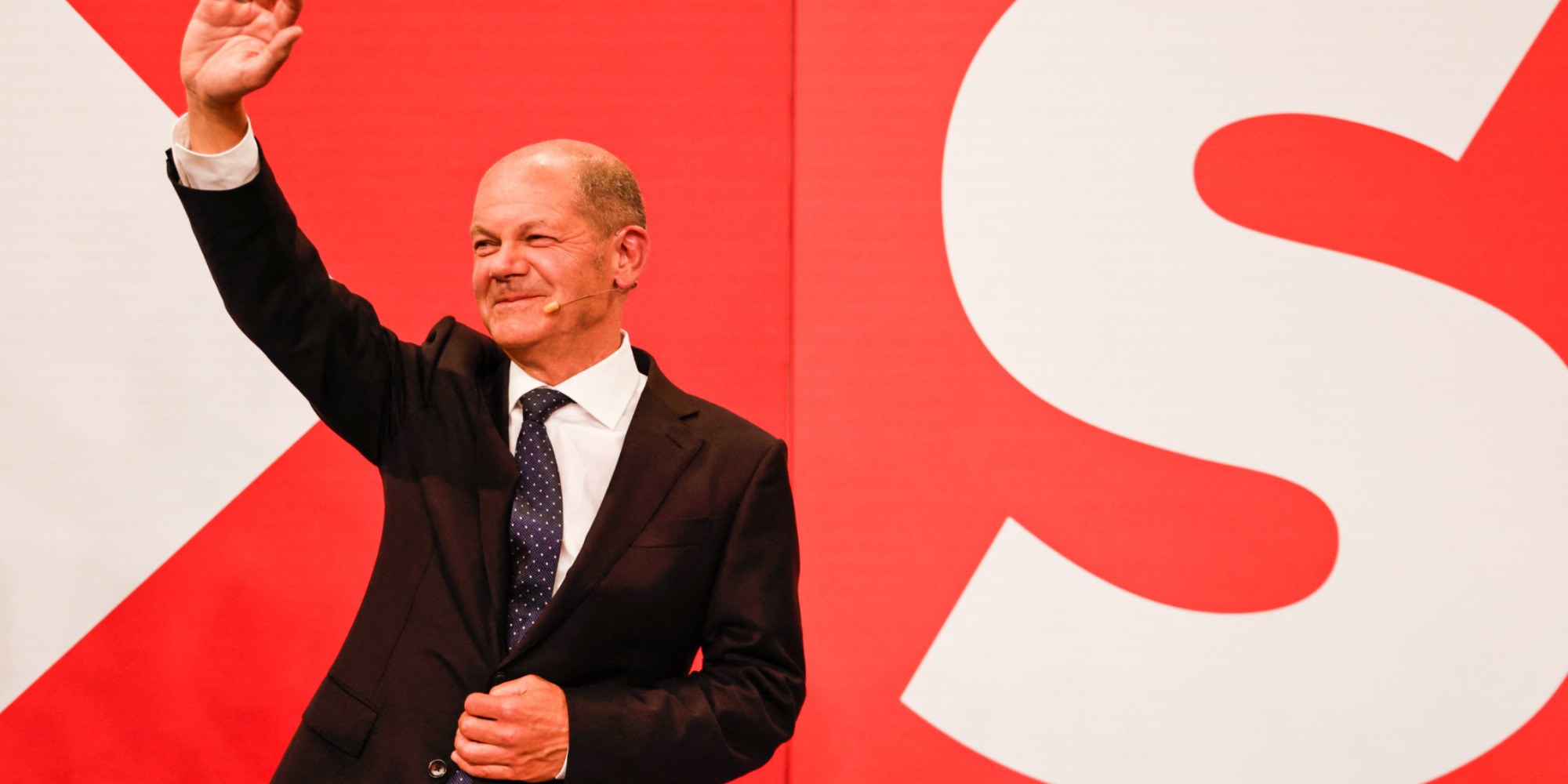Europe 1 with AFP 7:57 p.m., October 09, 2022
Olaf Scholz's Social Democratic Party won a test regional election in Lower Saxony on Sunday, according to TV broadcasters, at a time when the Chancellor sees his unpopularity growing in the country alongside high inflation .
Germany's Social Democratic Party won a test regional election for Chancellor Olaf Scholz on Sunday, giving him a break at a time when his popularity continues to wane in the face of the energy crisis.
The Social Democrats are credited with 32.7% to 33.3% of the vote in this regional state in the north of the country, the second largest in Germany, which they have led since 2013 in coalition.
They are ahead of the conservative party (CDU) of ex-Chancellor Angela Merkel, which won 27.5% of the vote, according to the ARD and ZDF channels.
Despite growing public discontent at national level, Olaf Scholz's party has benefited from the good local image of Lower Saxony's Minister President, Social Democrat Stephan Weil.
It saved him the humiliation of a new defeat, after two bitter electoral setbacks already recorded against the center-right last spring in two regional elections, in North Rhine-Westphalia and in Schleswig-Holstein.
A "referendum" on Scholz
This election was "very important" for Olaf Scholz, estimated German political scientist Karl-Rudolf Korte on the ZDF channel, because it constituted "a referendum on government policy" in the face of the war in Ukraine and the energy crisis.
Nevertheless, the SPD is back compared to the previous regional election of 2017, where it recorded 36.9%.
The Conservatives also posted a result well below their performance in 2017 (33.6%).
It is the extreme right in particular that seems to have benefited, capitalizing on the frustration and concern aroused by the problems of energy supply and the soaring prices: the Alternative for Germany (AfD) reaches almost 12%, according to estimates by television channels, almost double the previous election.
Its officials plead for a rapprochement with Russian President Vladimir Putin, believing that Germany cannot do without Russian gas.
The party rallied several thousand supporters at a demonstration against rising prices in Berlin on Saturday.
Its breakthrough is all the more significant since this movement is usually mainly established in the east of the country and not very popular elsewhere.
German ecologists, members of Olaf Scholz's government coalition, are also progressing strongly, with at least 14%, an increase of more than 5 points.
In number of seats in the local parliament, the Social Democrats and the Greens are arithmetically in a position to form a new majority, which would replace the current coalition made up of the SPD and the CDU.
This option, if confirmed in the final results, is the preferred option of the Social Democrats.
Rising inflation and plummeting popularity
Other losers of the ballot: the liberals (right), members of the tripartite coalition of Olaf Scholz.
They are credited with just 5% (down from 2017), the minimum threshold to enter the regional parliament of Lower Saxony.
Lower Saxony's results are a relief for Olaf Scholz, after the criticism he faced in Germany: support policy deemed too timid towards Ukraine, growing public fears about inflation, fear of a nuclear conflict in Europe.
Nationally, the SPD has fallen sharply in voting intentions, below the 20% threshold, outpaced by the Conservatives.
And Olaf Scholz's personal popularity melted away.
Soaring energy prices pushed inflation to 10% in September, the highest in Germany for 70 years.
In addition to declines in purchasing power and a recession announced next year, the leading European economy fears a disintegration of its industrial fabric.
The rise in energy prices is in Germany the first source of concern for almost one in two respondents (49%), against only 12% a year ago, according to a recent Ipsos poll.
Olaf Scholz recently attempted to respond to this by announcing a 200 billion euro plan to curb the rise in energy prices.
It was well received nationally, but it is causing controversy in Europe.
Berlin's partners accuse Germany of going it alone by following its own interests and ignoring European solidarity.

